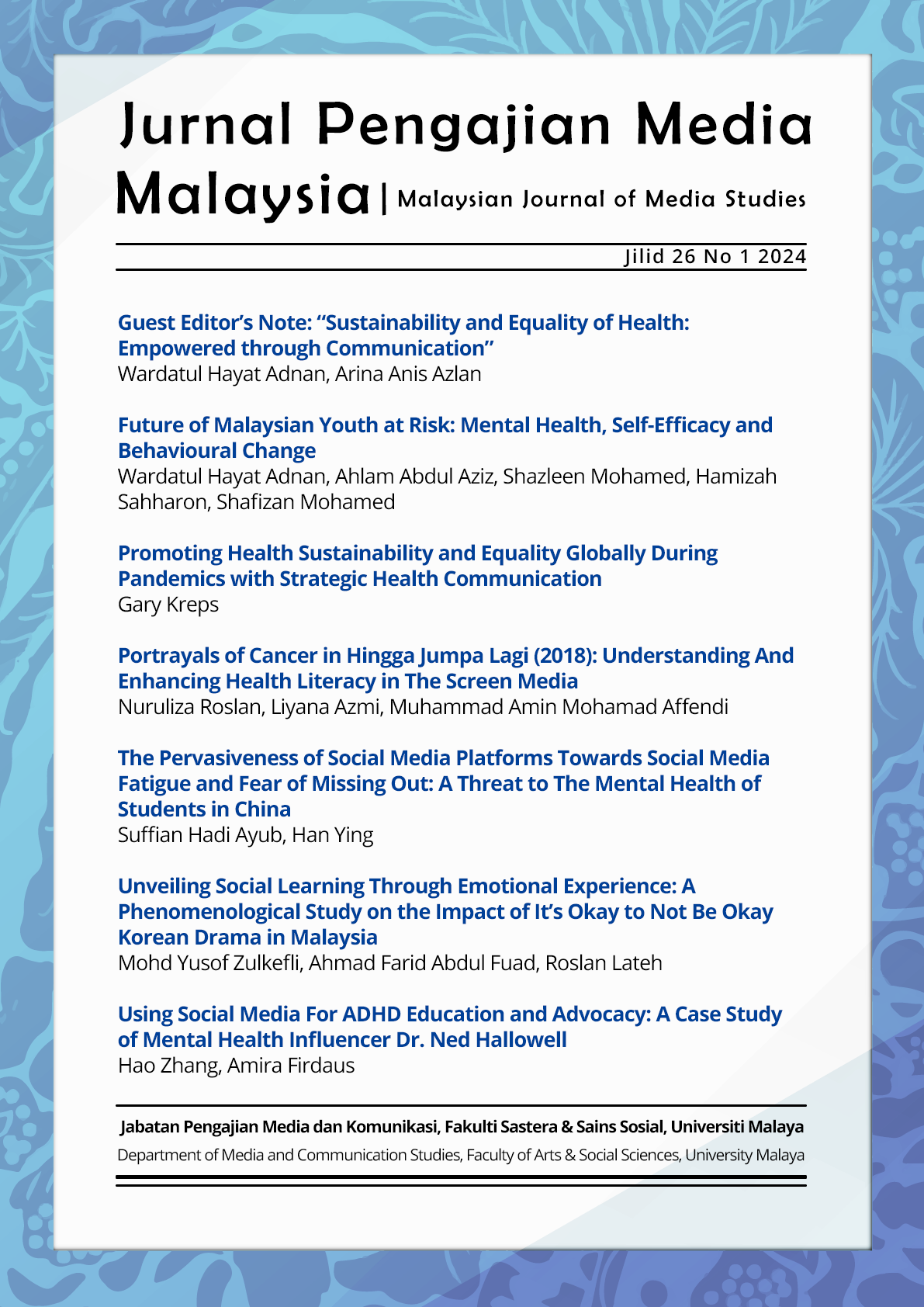Unveiling Social Learning Through Emotional Experience: A Phenomenological Study on the Impact of It’s Okay to Not Be Okay Korean Drama in Malaysia
Main Article Content
Abstract
Social learning is a process whereby it happens in all human beings through observing, imitating, and modelling the behaviours, attitudes, and emotional reactions of others. Social learning commonly happens and tends to happen naturally through the adaptation process. It can occur not only through interaction with others but this procedure can be triggered through mass media, leading to attitudes and behavioural change. In Malaysia, mental health is the second-highest health problem, and the drama “It’s Okay to Not Be Okay” with the mental health awareness theme is believed to be able to deliver educational information to the audience. Hence, this research employs emotional experience to further elaborate the presence of social learning among the audience in a qualitative approach by using the phenomenology study to understand the perception and emotions of the audience. In this study, 11 young Malaysian audiences aged 18 to 30 were selected using a purposive sampling method to conduct in-depth interviews. The results show that the audience learned and perceived the information from the drama has changed their perception of mental health issues and their behaviour towards someone with mental health problems by treating them equally and becoming more tolerant. The implication of this study indicates that the “charity starts at home” is the baseline of every behaviour development.
Downloads
Article Details

This work is licensed under a Creative Commons Attribution 4.0 International License.
